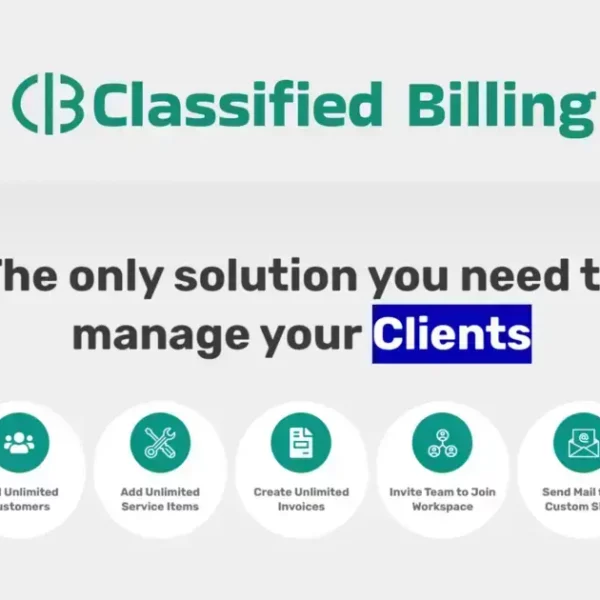The cost of CRM software varies based on features, user licenses, and deployment methods. Hidden expenses, such as training and data migration, can impact overall costs. Investing in CRM enhances customer relationships, improves efficiency, and drives sales growth, making it a valuable asset for businesses.
Cost of CRM software is an essential consideration for businesses aiming to enhance customer relationships and streamline operations. As companies look to invest in customer relationship management systems, understanding the associated costs is crucial. In this article, we will explore various factors that contribute to the overall cost of CRM software, compare pricing models from different providers, and highlight the hidden costs that can affect your budget.
Understanding the Price of CRM Software
Understanding the cost of CRM software is critical for any business aiming to enhance customer engagement and streamline operations. CRM software prices can vary widely based on features, scalability, and the number of users.
Basic Pricing Models
Most CRM software follows two common pricing models: subscription-based and one-time payment. Subscription models often have monthly fees per user, making it easier for businesses to scale up as needed. In contrast, a one-time payment could seem appealing but may require ongoing costs for updates and support.
Features That Affect Pricing
When determining the cost of CRM software, it’s important to consider the features included. Basic functionalities such as contact management and sales tracking are typically offered at lower prices. However, advanced features like marketing automation, analytics, and customer support integration can significantly increase the overall cost.
Scalability and User Limits
Many CRM solutions have pricing tiers based on the number of users and the level of service provided. If you expect growth, choose a system that offers easy scalability. This allows your business to expand without facing significant interruptions or needing a complete system overhaul later.
Free Trials and Demos
Many CRM providers offer free trials or demos, which can help you assess whether a system meets your business needs before committing to a financial agreement. Take advantage of these offerings to understand the platform’s capabilities and user interface.
Additional Considerations
Aside from initial costs, consider ongoing expenses like training, implementation, and potential hidden fees that may arise during the purchase and usage of CRM software. Knowing the total cost of ownership can help in budgeting properly.
Factors Influencing CRM Software Costs

Several key factors influence the cost of CRM software. Understanding these elements can help businesses make informed decisions when investing in a CRM system.
1. Features and Functionality
The range of features available directly affects the pricing of CRM software. Basic features like contact management may come at a lower cost, while advanced functionalities such as marketing automation, analytics, and customer service tools typically raise the price.
2. User Licenses
CRM software pricing often depends on the number of users. Most providers offer tiered pricing plans, where the cost per user decreases as you add more licenses. Therefore, businesses anticipating growth should plan their user needs accordingly to take advantage of better pricing options.
3. Deployment Method
CRM solutions can be cloud-based or on-premise. Cloud-based CRMs usually involve monthly subscription fees and are scalable according to business needs, while on-premise solutions may require a large upfront investment for software purchase and hardware. Consideration of deployment methods can greatly impact the overall cost.
4. Customization and Integration
Customization options and the ability to integrate with other existing systems can also affect CRM pricing. Tailoring a system to fit specific business needs may incur additional costs, while integration of third-party applications can lead to higher overall expenses.
5. Support and Maintenance
The level of customer support and maintenance included in a CRM package can vary. Comprehensive support options, such as training, troubleshooting, and updates, may increase initial costs but can lead to better long-term value for a business. Choosing the right support plan must be aligned with your support needs.
Comparing CRM Software Pricing Plans
When evaluating different CRM software options, comparing CRM software pricing plans is essential to find the best fit for your business. Various vendors offer different strategies for structuring their pricing, and understanding these plans can help you make a confident decision.
1. Tiered Pricing Models
Many CRM providers offer tiered pricing models that feature multiple plans ranging from basic to premium levels. Each tier typically provides a more extensive set of features. Businesses can select a plan that aligns with their needs and budget, often starting with a lower-cost option and upgrading as necessary.
2. Per-User Pricing
Most CRM services charge a per-user fee, where each individual using the software incurs a monthly or annual fee. This type of pricing requires businesses to anticipate how many users will need access, which can affect overall costs. Some vendors offer discounts for bulk user licenses.
3. Feature-Based Pricing
Some CRMs offer pricing based on included features. Businesses can customize their subscriptions by selecting the specific features they need, allowing for a more tailored solution. However, this can complicate pricing as more features can lead to higher costs.
4. Free and Freemium Options
Several CRM providers offer free plans or freemium models, where basic features are available at no cost. This can be a great way for small businesses or startups to explore CRM capabilities without initial investment. However, users should be cautious about upgrading to paid features, which might be required as their business grows.
5. Discounts and Promotions
Vendors often have seasonal discounts, promotional offers, or loyalty programs that can help reduce costs. It’s worth inquiring about these potential savings when evaluating different CRM software options, as they can lead to considerable savings over time.
Benefits of Investing in CRM Software

Investing in CRM software offers numerous benefits that can enhance business operations and improve customer relationships. Understanding these advantages is key for companies considering this investment.
1. Enhanced Customer Relationships
CRM software helps businesses track interactions with customers and leads, allowing for more personalized and timely communications. By having access to detailed customer histories, companies can better understand customer needs, which leads to increased satisfaction and loyalty.
2. Improved Efficiency
With CRM solutions, businesses can automate routine tasks such as data entry, follow-ups, and reporting. This automation allows teams to focus on more strategic initiatives instead of repetitive tasks, helping improve overall efficiency and productivity.
3. Better Data Management
CRM software consolidates customer data in one accessible location, making it easier to manage and analyze. Businesses can use this data for segmentation, targeted marketing strategies, and informed decision-making, ultimately leading to better business outcomes.
4. Increased Sales
By utilizing CRM tools, sales teams can track leads, follow up effectively, and manage their pipelines more efficiently. This structured approach to sales can result in higher conversion rates and revenue growth, as sales reps can prioritize leads based on potential value.
5. Scalability and Customization
Many CRM solutions are scalable, allowing businesses to grow and adapt as their needs change. Additionally, most CRMs offer customization options that let companies tailor the software to fit their unique processes and workflows, ensuring a better fit and greater user acceptance.
Hidden Costs of CRM Software Implementation
When budgeting for CRM software implementation, it’s crucial to consider potential hidden costs. These expenses can sometimes be overlooked but can significantly impact the overall investment.
1. Training Costs
Implementing a new CRM system often requires training for employees. Instruction sessions, materials, and the time spent learning the new software can lead to substantial costs. Planning for initial and ongoing training should be part of your budget considerations.
2. Data Migration Expenses
Transferring existing data to a new CRM can present challenges and expenses. Whether you choose to handle data migration internally or hire external experts, there will be costs associated with ensuring data accuracy and security during transfer.
3. Customization Fees
Many businesses require customization to fully align the CRM with their processes. Custom developments can incur additional fees, which might not be included in the initial pricing plan. Assessing the need for customization upfront can help avoid unexpected charges.
4. Ongoing Support and Maintenance
While some CRM software comes with basic support, additional costs may arise for more comprehensive service or long-term maintenance. Businesses should clarify what level of support is included and what might incur extra fees, ensuring that ongoing needs are met.
5. Integration with Other Systems
If your business uses other software systems, integrating those with the new CRM may incur costs. This could involve hiring IT professionals to facilitate system compatibility. It’s essential to assess these needs before choosing a CRM solution.
Summing Up the Cost of CRM Software
Investing in CRM software can significantly impact your business in many positive ways, from enhancing customer relationships to improving efficiency and increasing sales.
However, it’s essential to be aware of the hidden costs associated with implementation, such as training, data migration, and ongoing support. By considering all factors, you can make a more informed decision that aligns with your business goals.
Ultimately, a well-chosen CRM system will help your business succeed and grow in today’s competitive market, allowing you to better serve your customers and streamline operations.
FAQ – Frequently Asked Questions About CRM Software Costs
What are the main factors that affect CRM software costs?
CRM software costs are influenced by features, user licenses, deployment methods, customization, and support options.
Are there any hidden costs I should be aware of?
Yes, hidden costs can include training, data migration, customization, ongoing support, and integration with other systems.
How can CRM software improve my customer relationships?
CRM software tracks interactions and customer data, allowing for personalized communications and better service.
What is the value of investing in CRM software?
Investing in CRM software leads to improved efficiency, enhanced data management, increased sales, and better customer insights.
Can I get a CRM for free?
Many CRM providers offer free or freemium models, allowing you to use basic features without an initial investment.
How do I know which CRM software is right for my business?
Assess your business needs, budget, and desired features. Consider starting with a free trial to evaluate the software’s capabilities.




